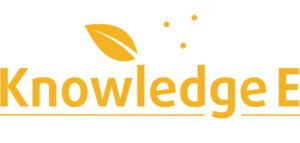This month’s Top Picks have been compiled by our team of journal editors to keep you informed on the latest developments in research. Our articles explore topics ranging from health and wellness to technology and social media.

1. Digital Education: A blessing or a curse?
The 21st century has seen many technological advancements, which have helped shape education systems across the globe. Yet, there is still a gap between tech-savvy societies and underprivileged communities which can heighten inequalities in education. This has led researchers to explore the need for, and benefits of, technology-based learning in elementary schools, as they try to determine whether these skill sets do indeed put students at an advantage.
Discover the different activities of a technology-based learning model and its fascinating results here.

2. Could Menopause Heighten Women’s Risk of Getting Sick?
Getting old happens to everyone. This is usually accompanied by greying hairs and stiffening joints, amongst other issues. Women, in particular, can see a a wide range of physical and emotional transformations as they experience menopause, including symptoms like hot flashes and mood swings. In addition, as new studies have demonstrated, , menopause has a significant negative impact on the immune system, making menopausal women more at risk of sickness than the average person in society.
Find out more about the risk factors associated with Covid-19 and the female menopause here.

3. How Do YouTubers Use Multilingualism as a Marketing Tool?
In an increasingly globalised world, the ability to communicate in different languages can be an advantage. Language skills play a critical role not only for individuals seeking to grow their hobbies but also for content creators in the digital world. With almost 2.6 billion people using YouTube worldwide, videos in different languages attract a diverse audience base. Some viewers even watch YouTubers from different countries to improve their own language proficiency. Being a multilingual or bilingual YouTuber thus has its perks, as communicating in many languages becomes a marketing tool increasing visibility and engagement.
Discover more about the fascinating world of language styles in the world of YouTube and how it influences content creators here.

4. What Can Graffiti Tell Us About Social Movements and Artistic Choice?
Graffiti is often considered an eyesore and an act of vandalism. However, it is also a form of artistic expression and social protest – from the satirical cartoons etched on the walls of ancient Rome to the pointed political and social commentary embedded in the works of noted modern graffiti artists such as Banksy. Sometimes the messaging of these social protests is overt and obvious to the casual viewer, but sometimes there are underlying meanings forming a subtextual commentary beneath the superficial surface imagery. These differing approaches to graffiti protest were showcased during the early days of the #MeToo movement, as many artists took to the streets to protest sexual harassment against women.
Learn more about the use of graffiti in urban anti-sexual harassment movements here.

5. Why Is Herbal Medicine Becoming So Popular?
In many societies and cultures, the comparative benefits of herbal remedies used in traditional medicine versus pharmaceutical drugs developed under the auspices of modern medicine are hotly debated. There are pros and cons to each side of the debate, and success stories and testimonials to support each side. Recent surveys have discovered that more people in the UAE are now using herbal medicine, which has piqued the curiosity of researchers. Is herbal medicine really the way to go, especially in an era of great medical discovery?
Read this study to understand more about the benefits and drawbacks of herbal medicine.
More from the KnE Blog

KnE Publishing Top Picks For May 2023
Our May Top Picks were curated by our journal editors to bring you the best in Open Access research. May’s carefully selected articles explore issues around accessibility, healthcare, education, and culture.
